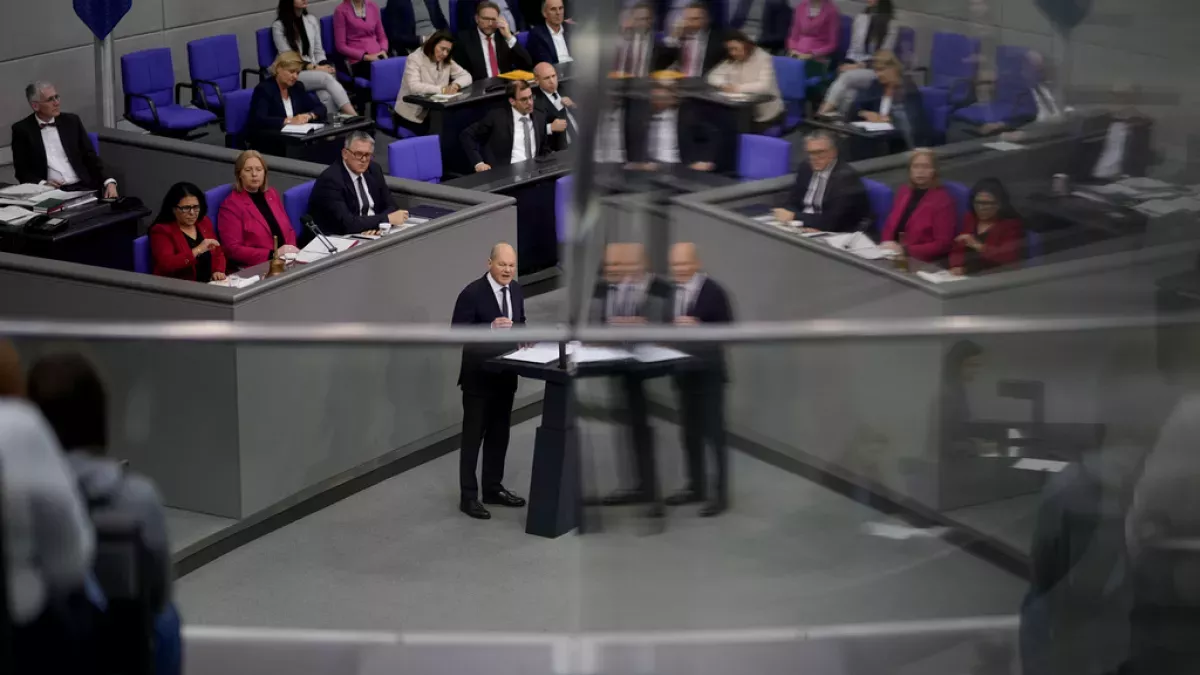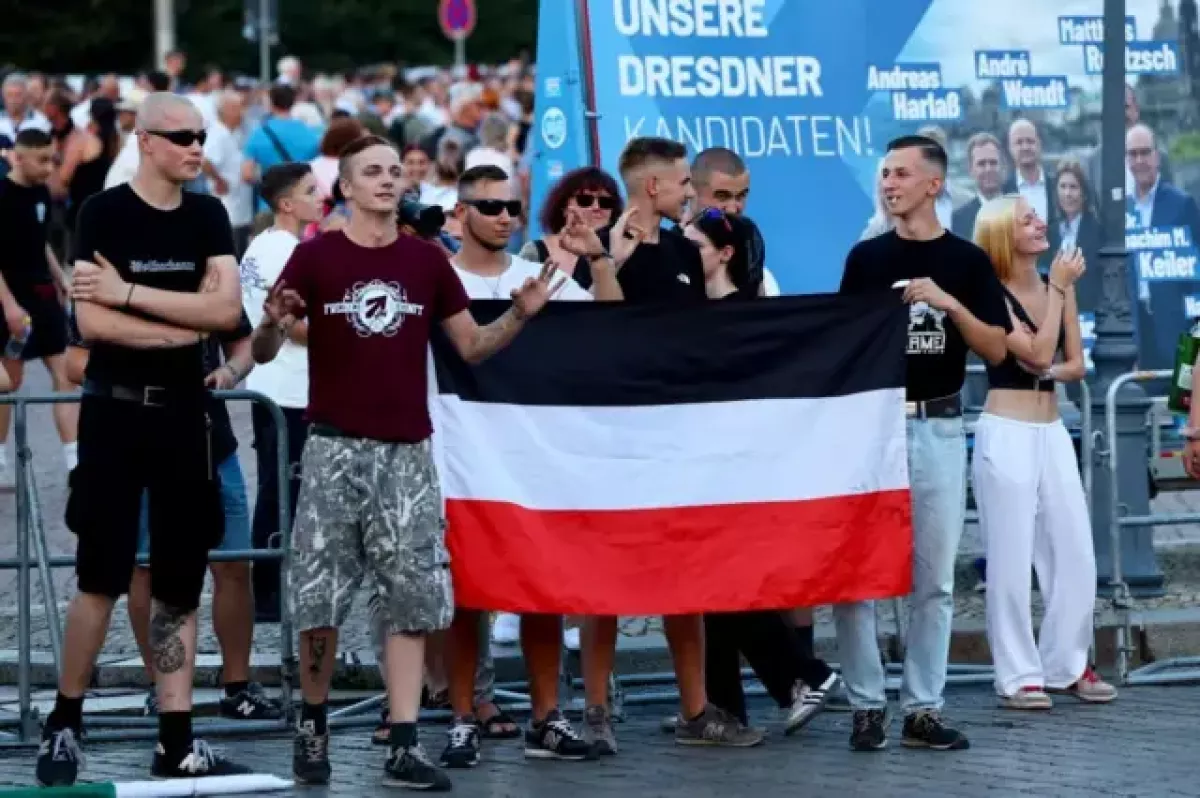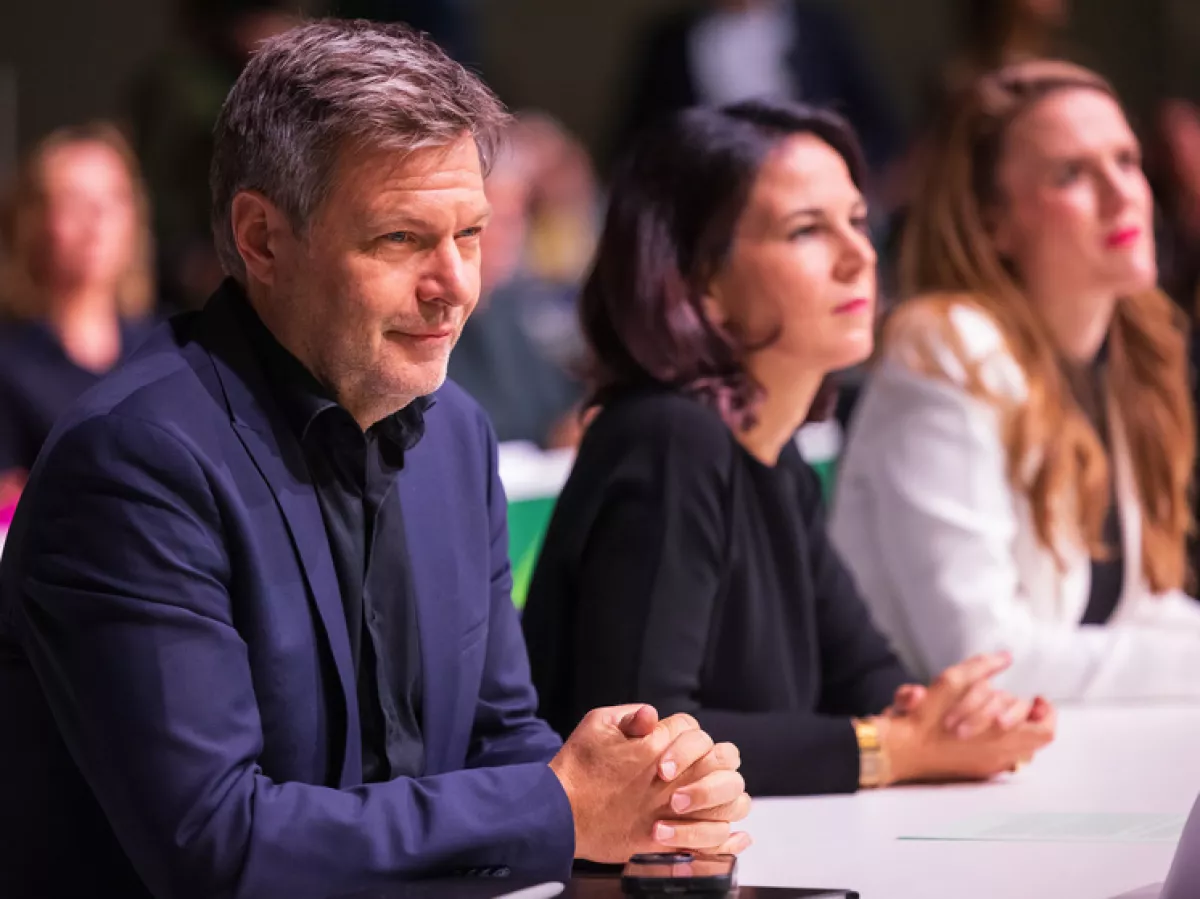Germany's rightward drift and the fight for power Candidates, strategies, and intrigue
The moment has arrived. The "Alternative for Germany" (AfD), just over a decade after its founding, has announced a candidate for Germany’s chancellorship—party co-chair Alice Weidel. With the collapse of the "traffic light coalition," Germany has swiftly entered election mode as early Bundestag elections approach. The date is already set: February 23, 2025. Against this backdrop, the nomination of chancellor candidates by various parties seems anything but spontaneous.
The opposition CDU/CSU bloc has put forward Friedrich Merz as their candidate, while Vice-Chancellor and Economy Minister Robert Habeck represents the Alliance 90/The Greens. Christian Lindner, former Finance Minister under the "traffic light coalition," is running for the Free Democratic Party (FDP). Meanwhile, the Social Democrats (SPD) have once again backed Olaf Scholz, although Defense Minister Boris Pistorius was a serious contender for the nomination.
One of the central themes of the upcoming election campaign is expected to be Germany's support for Ukraine—a point that became particularly evident during the December 6 Bundestag debate initiated by the FDP. The Free Democratic Party, along with the CDU/CSU bloc and the Alliance 90/The Greens, firmly backed a decision to expand arms supplies to Ukraine, including TAURUS cruise missiles, a move openly opposed by Olaf Scholz.

Key elements of Scholz’s campaign platform were unveiled at the end of November and during his recent responses to Bundestag members' questions. Notably, Scholz sharply criticized the CDU, accusing it of straying from its social values, and took a firm stance against deploying German troops to Ukraine. This directly contradicted Foreign Minister Annalena Baerbock’s earlier statement suggesting German forces could be sent to Ukraine as part of a peace agreement. By framing Friedrich Merz as a "hawk," Scholz seeks to present himself as a "measured and restrained" leader. Additionally, he has shifted his position on migration policy, effectively adopting certain aspects of the AfD's platform in this area.
As for the AfD’s perspective, it is worth revisiting insights previously shared with readers by Caliber.Az. Notably, the German Language Society declared Ampel-Aus ("traffic light off") as Germany’s "Word of the Year," symbolizing the collapse of the coalition government comprised of the "red" Social Democrats, "yellow" Free Democrats, and the Greens.
Equally significant is the inclusion of the term Rechtsdrift ("rightward drift") among the Top 10 German Words of 2024. This term reflects the outcomes of both the European Parliament elections (as they pertain to Germany) and regional elections in Thuringia, Saxony, and Brandenburg, where the AfD achieved notable gains. The fact that Rechtsdrift secured a place in the Top 10—out of nearly 2,500 contenders—underscores the growing prominence of a rightward political shift in Germany.
This shift is so pronounced that in November, over 100 Bundestag members signed a petition calling for a ban on the AfD, a proposal initiated by the CDU. Preliminary polls indicate that the AfD could secure second place in the upcoming elections, with just under 20% of the vote, trailing only the CDU.
The party’s slogans remain unchanged: reducing migration, opposing Ukraine's NATO membership, lifting anti-Russia sanctions, and other well-known domestic policy points. As Alice Weidel herself declared, “We aim to put Germany back on top, as a global leader.”

According to analysts, the ability of political parties to leverage social media will significantly impact the election outcomes—a domain in which the AfD has consistently excelled. For instance, Friedrich Merz recently highlighted the spread of fake news about him on social platforms, referencing a video posted by an SPD representative that portrayed him as "expressing contempt for democracy." Addressing the Social Democrats, Merz remarked that he now understands the tactics they plan to employ during the campaign.
Supporters of Olaf Scholz, meanwhile, have expressed concern over the influence of Elon Musk, the owner of X (formerly Twitter). Shortly after the collapse of the "traffic light coalition," Musk referred to the current German Chancellor as a "fool". In response, Vice-Chancellor and Economy Minister Robert Habeck, after a six-year hiatus from social media, returned to X, stating that he does not wish to leave the platform to "populists."
Adding to these concerns is the fact that Musk has previously used his platform to bolster Donald Trump's campaign in the United States, raising alarms among German politicians about his potential sway over their country’s political discourse.

Some experts are not ruling out the potential impact of the left-wing party Sahra Wagenknecht Alliance – Reason and Justice (BSW). Its leader, Sahra Wagenknecht, had already announced in October—prior to the government crisis—that her party would nominate a candidate for Chancellor in the parliamentary elections. This has led analysts to speculate that Wagenknecht may intensify her campaign efforts in light of the upcoming early elections.
However, many observers believe the primary aim of Wagenknecht’s party is to siphon votes from the AfD. For now, projections suggest that the Alliance is unlikely to secure more than 6% of the vote.
In any case, on December 11, as Olaf Scholz promised back in November, he is set to put forth a motion of confidence in his government in the Bundestag. This step will pave the way for early parliamentary elections, with the confidence vote scheduled for December 16. Germany—and beyond—waits in anticipation.








